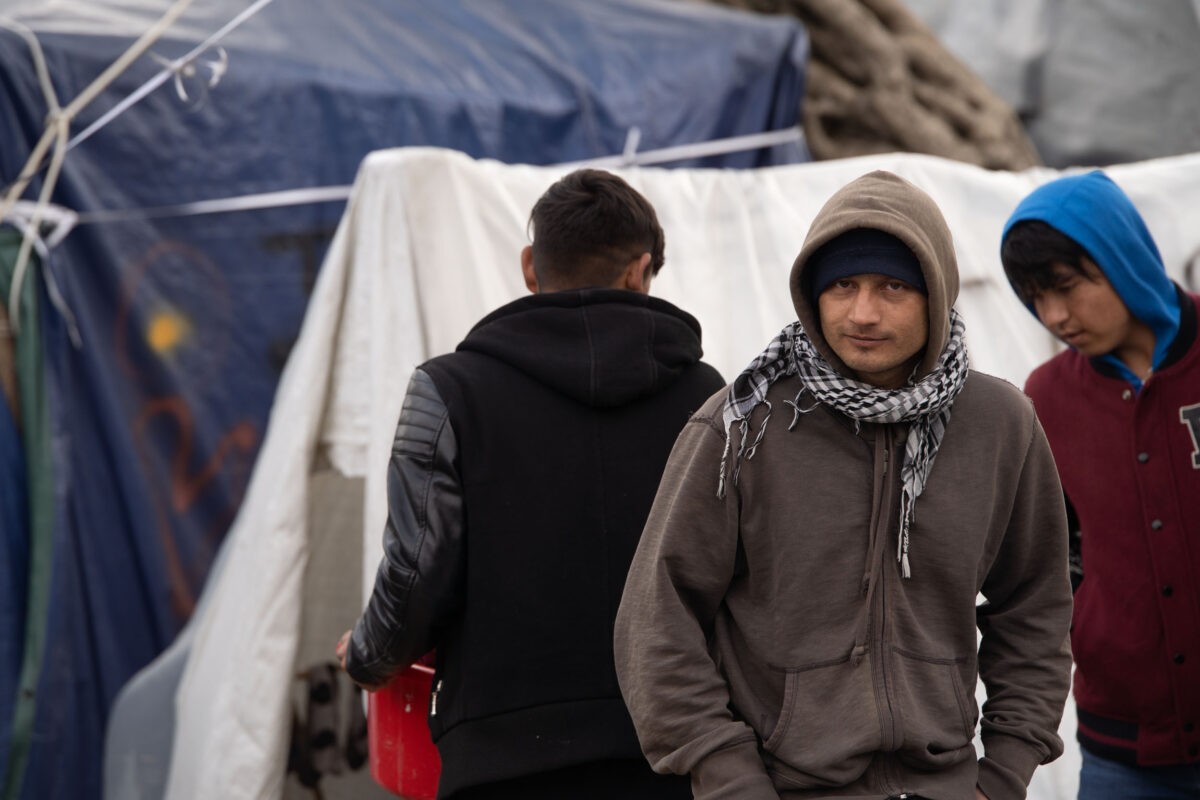This is the current situation on the Greek islands

Status: turn of the year 2021/22
At the moment there are officially 3.544 asylum seekers on the Greek islands Lesbos, Chios, Samos, Kos and Leros. Here you get an overview of the current situation on the islands. All figures are taken from the official statistics of the Greek Ministry of Migration, which you can download here. can view here. Under „National Situation: Migrant and Refugee Issue“ you will find the daily updated figures.
Declining numbers on the islands
Many people have been brought to the mainland in the past six months. Most of them are recognized refugees, but then often end up in precarious living conditions or homelessness. WDR captured the situation from the perspective of the affected children back in May.
Another reason for the steadily declining numbers is the acceleration of asylum procedures on the islands, which is accompanied by a high degree of legal uncertainty. First, the Greek government declared Turkey a safe third country. Not because Turkey is a safe third country, but because most protection seekers enter via Turkey. Thus, there is no longer any substantive examination of applications from people from Syria, Afghanistan, Pakistan, Bangladesh and Somalia.
At the same time, NGOs report glaring deficiencies in the asylum interviews: untrained staff, poor translation, hardly any follow-up questions. In the end, a lot of negative decisions are made in a short time. While in the last years the situation on Lesbos was always explained with a huge backlog, and people sometimes had to wait two years for their first interview with the authorities, today it is common that the second (final) decision is made after 6-8 weeks. If possible, people then come to so-called "Pre-Removal Detention Centers", in German Deportation Prisonswhere conditions are disastrous. Most of them don't even know when they will be deported, since deportation flights are mostly suspended due to the pandemic.
Pushbacks between Greece and Turkey
Another reason for the decreasing numbers is the decreasing arrivals on the Greek islands. This is due to the pushbacks that are carried out at sea and on land by the Greek police.
The Turkish Ministry of the Interior, whose command also includes the sea rescue in the Aegean Sea, has meanwhile set up its own website (Pushback Incidents), on which the cases are recorded in detail and partly with videos and photos. Never before such a number of unmaneuverable boats or life rafts have been recorded in the Aegean. It is clear here that people do not set off in boats without engines, nor in life rafts on the Turkish side. The NGO Aegan Boat Report, has here in the archive detailed the pushbacks totaled and archived. Behind each number is a person who was deprived of their right to apply for asylum – and put in a life-threatening situation at sea.
MPCRIS open
A key development of European migration policy in Greece is the opening of the Multi-Purpose Reception and Identification Centers (MPRICS), built on the Aegean Islands with EU funding. The idea behind this is that those seeking protection, sealed off from cities and unseen by the general public, can behind walls and barbed wire be housed. To get in, you have to give a chip card and also fingerprints, at night people are locked in there. The press only gets in in exceptional cases. On Samos and Kos, these camps have now been opened; on the other islands, some of the planning has stalled and is expected to be completed next year. Another point I have in a letter with my group colleague Alexandra Geese themed in November: The camps are fully equipped with video surveillance. In some cases, employees of the Ministry in Athens can look into the private rooms of those seeking protection with cameras. This was also paid for with money from the EU Corona reconstruction funds, although the money is not earmarked for this at all.
The new camp on Lesvos is not yet completed, which means that the people in the temporary camp Mavrovouni, contrary to all promises, still have to spend a winter. Although some containers have been put up in the meantime and not all people live in tents anymore. But quite a few still do. The situation on Lesvos is described in the monthly "Lesvos Bulletin" by Oxfam and the Greek Refugee Council, which also explains why detention for those seeking protection is now a very common practice in Greece.
Criminalization
The criminalization of aid and restriction of press freedom on the islands is frightening. There have been and still are several cases against aid workers and NGOs, against whom absurd accusations are made. In November, on Lesbos, a Proceedings opened against 24 activistsThey are accused of bringing people seeking protection into the country illegally. They simply rescued people from distress at sea. The central piece of evidence is said to be the passing on of information about active sea rescue cases via messenger services such as WhatsApp. Help was coordinated here in a group set up by the UNHCR for this purpose, in which the accused persons were members. The Guardian broke the story here.
There are also massive restrictions on the press in Greece. There are repeated arrests on the Greek islands. A few weeks ago, photojournalist Tim Lüddemann was arrested while photographing a camp from the outside and interrogated for several hours. Afterwards, Stavros Maliuchidis made public that his phone was demonstrably tapped by the secret services. Stavros is a member of the Journalists' Collective "We Are Solomonthat researches in Greece mainly on migration and asylum.